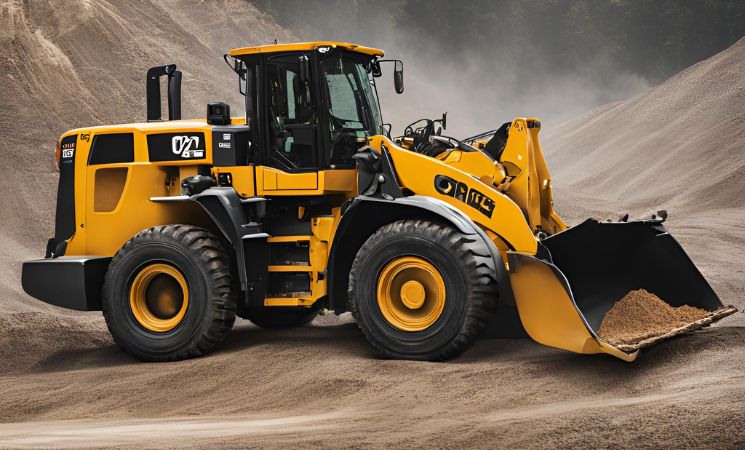When it comes to heavy-duty construction jobs, choosing the right equipment is crucial to ensuring that the project is completed efficiently and on time. A wheel loader is one of the most versatile machines used in construction, capable of handling tasks such as material handling, earthmoving, and site preparation. However, selecting the right model for your specific project can be challenging, especially when considering factors such as size, power, and attachments.
In this guide, we’ll walk you through the key factors to consider when choosing the right wheel loader for heavy-duty construction jobs, helping you make an informed decision that maximizes productivity and efficiency.
1. Consider the Project Scope and Requirements
Before selecting a wheel loader, it’s essential to evaluate the scope of your project. Each construction job has different requirements, and the wheel loader you choose must align with the tasks at hand.
Key Questions to Ask:
- What materials need to be moved? Whether you’re handling gravel, sand, rocks, or debris will influence the size and capacity of the wheel loader.
- How large is the job site? Larger construction sites may require wheel loaders with more powerful engines and larger bucket capacities, while smaller or confined sites may need compact models with greater maneuverability.
- What are the site conditions? Uneven or rugged terrain may require a wheel loader with enhanced stability and traction capabilities.
By clearly defining the project’s needs, you can narrow down your options and select the best wheel loader for the job.
2. Evaluate Wheel Loader Size and Capacity
Wheel loaders come in various sizes and capacities, and choosing the right size is crucial for ensuring optimal performance on the job site. Larger wheel loaders typically have higher horsepower, greater lifting capacity, and larger bucket sizes, making them ideal for moving large volumes of materials.
Types of Wheel Loaders:
- Compact Wheel Loaders: These smaller machines are perfect for tight spaces or projects where mobility is key. They’re often used for smaller earthmoving or landscaping jobs, where precision is more important than raw power.
- Mid-Sized Wheel Loaders: These loaders strike a balance between power and maneuverability. They’re ideal for a wide range of construction jobs, from site preparation to material handling.
- Large Wheel Loaders: For heavy-duty tasks such as mining, large-scale earthmoving, or bulk material handling, large wheel loaders with powerful engines and massive bucket capacities are essential.
When selecting a wheel loader, ensure that the machine’s size and bucket capacity match the volume of materials you need to move to avoid underperformance or unnecessary downtime.
3. Choose the Right Attachments
One of the key advantages of wheel loaders is their ability to be equipped with a variety of attachments, allowing them to perform multiple tasks on the job site. Choosing the right attachments can greatly enhance the machine’s versatility and efficiency.
Common Attachments for Wheel Loaders:
- Buckets: Buckets come in various sizes and types, such as general-purpose buckets, rock buckets, and light material buckets. The right bucket will depend on the material you need to move.
- Forks: For construction jobs that require material handling, such as lifting pallets or transporting building materials, forks can turn a wheel loader into a powerful material handler.
- Grapples: Grapples are used for lifting irregularly shaped materials, such as logs, debris, or demolition waste. This attachment is ideal for construction sites with heavy debris cleanup.
By choosing attachments that align with the specific tasks of your project, you can increase the productivity and versatility of your wheel loader.
4. Consider Power and Fuel Efficiency
The power of a wheel loader is determined by its engine size and horsepower, both of which are critical for ensuring the machine can handle heavy-duty tasks. For jobs requiring significant earthmoving or material handling, opting for a more powerful wheel loader ensures the machine won’t struggle under load.
Fuel Efficiency:
In addition to power, fuel efficiency is an important consideration, especially for long-term construction projects. Modern wheel loaders are designed with fuel-efficient engines that not only reduce operational costs but also minimize environmental impact. Look for models with advanced engine technology that provides both power and efficiency.
Conclusion
Choosing the right wheel loader for heavy-duty construction jobs is essential for completing projects efficiently and safely. By evaluating the project scope, selecting the appropriate size and capacity, choosing the right attachments, and considering engine power and fuel efficiency, contractors can ensure they have the right equipment for the job.
With the right wheel loader, you’ll not only improve productivity but also reduce downtime and ensure that your project runs smoothly from start to finish.














